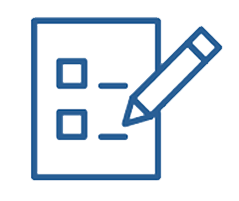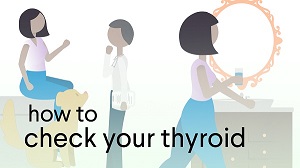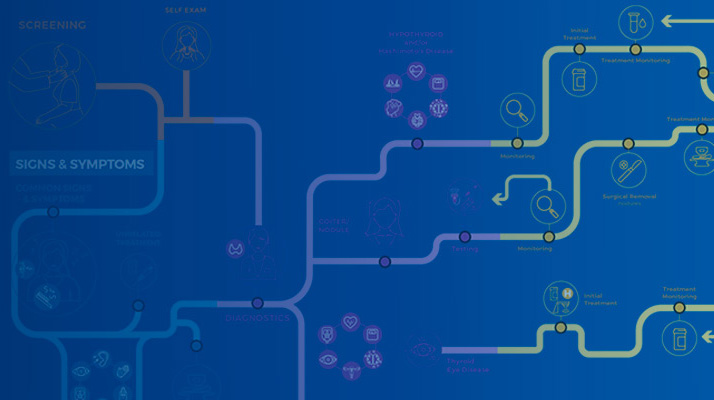An underactive thyroid, or hypothyroidism, occurs when the thyroid gland doesn't make enough thyroid hormones to meet your body's needs. The result is the “slowing down” of many bodily functions. Hypothyroidism usually is a permanent condition that is generally treated with a single daily dose of levothyroxine, a hormone replacement tablet. The correct dosage of levothyroxine can help return the thyroid balance to normal.
Listen to endocrinologist Debra Margulies, MD, FACE, ECNU, answer frequently asked questions about hypothyroidism including common symptoms, treatment using the prescription drug levothyroxine, as well as how to manage your health through shared decision-making with your health care professional.
Dr. Margulies is a board-certified endocrinologist that sub-specializes in the treatment of thyroid and parathyroid conditions at Summit Health.
Accede al video en español aquí.
Frequently Asked Questions About Hypothyroidism
To gain a thorough understanding of your personal condition and actively participate in a shared decision-making approach to your care, it is important to know what questions you can discuss with your health care professional about hypothyroidism and its management.
Below are frequently asked hypothyroidism questions you can ask your health care professional to better understand your condition, establish a smoother dialogue, and improve your overall health outcomes.
What is your thyroid and why is it important for your body? The thyroid is a small butterfly-shaped gland in the front of your lower neck. Its job is to produce thyroid hormones that help to control how your body uses energy. The thyroid is vital to most of your body's functions, and if your thyroid isn't working properly, neither will you.
What is thyroid-stimulating hormone, TSH? Thyroid-stimulating hormone, also known as TSH or thyrotropin, is produced by your pituitary gland and it serves to control the release of thyroid hormones from your thyroid. Measuring your TSH levels is the most accurate and reliable blood test used to determine thyroid function. Factors that can affect the TSH test result other than the status of the thyroid gland or thyroid medication dose include pregnancy, advanced age, certain medications, and other underlying health conditions.
What are target TSH levels? The target TSH level for most individuals is between 0.5 and 4.5 milli-international units per liter. Depending on the lab assay and your individual health history, this target range may vary. TSH levels that are too high or too low may be a sign of a thyroid problem. A low TSH level typically indicates that a person is either overproducing thyroid hormone, also known as hyperthyroidism, or is on too high of a dose of thyroid hormone medication. A high TSH level indicates that your body is either not making enough thyroid hormone resulting in hypothyroidism, or if you are on thyroid hormone medication, the dose is too low.
What is hypothyroidism? If your thyroid gland does not produce enough thyroid hormone, then you could have a condition called hypothyroidism. In iodine-sufficient countries such as the United States, hypothyroidism is most commonly caused by an autoimmune disorder called Hashimoto's thyroiditis. In people with Hashimoto's thyroiditis the immune system inappropriately creates antibodies with the potential to attack your thyroid gland. If they are successful, hypothyroidism can result. Other less common causes of hypothyroidism can include thyroid surgery, pituitary diseases and certain medical therapies used in the treatment of cancer. Learn more about the common causes, symptoms, diagnosis, and treatment options of hypothyroidism here.
What are common symptoms of hypothyroidism? When left untreated, common symptoms of hypothyroidism may include fatigue, weight gain, dry skin, constipation, changes in hair, and feeling cold. Hypothyroidism is diagnosed with blood tests that are evaluated in a laboratory.
What is the goal of treating hypothyroidism? The goal is to relieve your related symptoms and normalize your thyroid hormone levels.
How to treat hypothyroidism? Hypothyroidism is usually treated by taking a daily hormone replacement tablet called levothyroxine.
What is levothyroxine? Levothyroxine is a medication taken as an oral tablet that serves as a replacement for the amount of hormone that your thyroid is not making. This is the most common medication used for the treatment of hypothyroidism. Dosages can be individualized and adjusted according to your lab results, with the goal being to achieve a normal TSH level for you. It is important to take your thyroid medication as prescribed in the morning and properly separated from food and other medications and supplements. It’s important to have your TSH tested periodically to determine if any adjustments need to be made to your dose or how you take your medication. There are no evidence-based dietary or lifestyle modifications that are otherwise recommended for the management of hypothyroidism.
On average how long would it take to establish the optimal treatment dose? Your optimal treatment dose is achieved by monitoring your TSH levels. Your health care professional will prescribe an initial dose of levothyroxine and then retest your blood level of TSH after 4-12 weeks. Your dose can be adjusted at that time if needed. This process may need to be repeated several times before your hormone levels become normal. Remember, there are no specific hypothyroidism symptoms, and some symptoms present or related to hypothyroidism can also be present in many other conditions.
Can TSH levels vary based on age, sex, and stage of life? TSH levels are thought to likely vary by age to a small degree, with a shift towards higher values being found in older individuals over 65-70 years of age. Data regarding variation of TSH based on sex and stage of life (i.e., in post-menopausal women) is less clear and conflicting.
During pregnancy, what are normal TSH levels? There are changes in thyroid physiology that arise in pregnancy which necessitate the use of trimester specific TSH reference ranges. This is especially true in the first trimester, when it is generally recommended to keep the TSH level under 2.5 mIU/L for optimal health of the pregnancy and baby.
Are TSH levels elevated with thyroid cancer? Although higher TSH values have been reported in thyroid cancer patients in some studies, the TSH levels are generally normal.
Can other medications and supplements interfere with TSH levels? There are several different ways that medications and supplements can interfere with TSH levels. There are those that have the ability to interfere with an individual's thyroid physiology and contribute to the development of hypothyroidism. There are also medications and supplements that can interfere with the absorption of levothyroxine. It is important to talk to your health care professional about the proper timing and administration of your prescription relative to your other daily medications and supplements. Lastly, there are supplements which can interfere with the TSH laboratory assay. The most well-known of these is biotin, a popular over-the-counter supplement purported to improve hair and nail health. This supplement should be held for at least 3 days prior to thyroid laboratory testing to avoid interference.
Should I be tested again if my thyroid hormone medication has been changed by my insurance provider or pharmacy? Health care plans often cover a variety of medicines, but when your coverage changes, your prescriptions might also. Be sure to keep a close eye on your prescriptions. If you notice a change, tell your health care professional so they can test you again and ensure you are still receiving the correct dosage.
What changes or conditions may require an off-schedule visit for a thyroid hormone assessment? Make an appointment with your health care professional if you notice your symptoms are restarting that were previously resolved, your treatment is not working that well anymore, starting any new medications, getting pregnant, or developing a new health condition.
When should I be referred to an endocrinologist? Referral to an endocrinologist is recommended when goal TSH levels cannot be achieved or maintained with success. Referral is also recommended for women with hypothyroidism that are trying to conceive or that are pregnant.
How can I take control of my health? It is important to communicate openly with your health care professional about your symptoms and any concerns or questions that you have regarding hypothyroidism and its treatment. Together, through these conversations and shared decision-making regarding dosage and interval of follow-up visits, you will be empowered to find the best treatment plan for you.
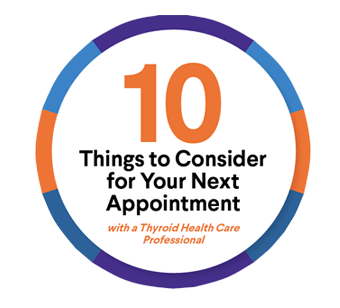
10 Things to Consider Before Your Next Thyroid Health Care Appointment
Get the most out of your health care appointment by preparing some basic information in advance and following up with your health care professional.

1. Get organized:
Before your appointment gather all your medical information including your insurance card, emergency contact information, family medical history, allergies, and relevant paperwork such as previous lab work. This information will be important to share with your health care professional so they can best evaluate your personal condition.
2. Write down questions you may have:
Consider your overall health, how you’re sleeping, your diet, your exercise routine, and any concerns you may have mentally or physically. Taking some time before the visit to write it all out will help you and your health care professional make the most of your appointment. Below are some recommended questions:- Where is the thyroid located, and what does it do?
- What are the differences between hypothyroid and hyperthyroid patients, and what are the symptoms of each?
- What is thyroid-stimulating hormone (TSH), how is it measured, and what should my target number be?
- What else besides TSH levels are important for making sure my thyroid condition is under control?
- Why are more people than ever being diagnosed with thyroid cancer, and should I be checked for it?
- What is the difference between a generic thyroid-hormone pill and a brand-name thyroid-hormone pill?
- What time of day is best to take my thyroid-hormone pill?
- May I take my thyroid medication with food, other medications, vitamins, or supplements?
- Can any of my other medications affect my thyroid?

3. Bring a list of any medications or supplements you are taking including dosage levels:
For example, Biotin supplements can interfere with thyroid function tests by showing falsely low TSH levels. The more information you provide your health care professional, the better they can take care of you during your visit.
4. Make a list of symptoms you are experiencing including when you are not feeling your best:
Are you noticing your symptoms are better or worse in the mornings? Keeping a symptoms journal will help you keep track of your health and if treatment adjustments are needed.
5. Make a list of any changes in your routine:
Think about your routine and list any changes you have noticed. For example, are you experiencing fatigue, unexplained changes in weight, depression, anxiety, changes in memory, joint or muscle pain, trouble sleeping, fast or irregular heartbeat, or any other changes in your daily routine?
6. Arrive on time for your appointment:
Arriving early or on time allows you to not rush when filling out any necessary paperwork including important information about your medical history.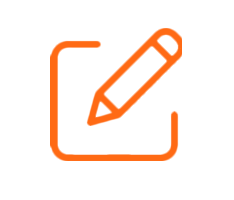
7. Take notes during your appointment:
Be sure to bring a notepad and pen, or your cell phone to write down what you discuss. Taking notes also allows you to come back to them later when you have a follow-up appointment. If you experience memory or cognitive difficulties, consider bringing someone with you to your appointment who can assist in notetaking and communicating any relevant information to your health care professional.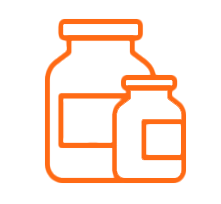
8. Medication:
Ask your health care professional if the other medications or supplements you are taking can interfere with thyroid hormone replacement or affect your TSH levels (if so, you should have your TSH levels checked again). Also let your health care professional know if there has been a change made in the levothyroxine prescription you received from the pharmacy, including changes made by your insurance company (for example: one brand change to another, a brand change to a generic, one generic changed to another generic), as this will require testing your TSH levels again to ensure you are receiving the correct dosage. It is important to make sure you take your thyroid medication exactly as prescribed by your health care professional.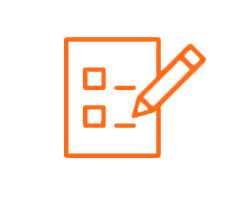
9. Follow through:
Follow through with your health care professional’s recommendations and refer back to your appointment notes. Be honest and share if you have forgotten to take your medication, are having trouble paying for it, or have any other concerns. This will allow your health care professional to discuss treatment adjustments that will best support you.
10. Stay in touch with your health care professional even after your appointment:
Sometimes a new medication or treatment plan might not work well for your personal situation. Keeping open communication will empower you to advocate for your health and discuss treatment monitoring and adjustment options. Remember, you are the leader of your health.


